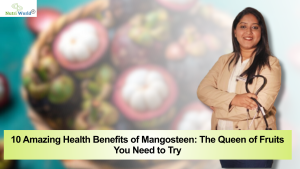When it comes to hair health, most people focus on protein, biotin, or omega-3 fats—but magnesium often gets overlooked. This humble mineral plays a surprisingly big role in preventing hair thinning, reducing hair fall, and promoting stronger, shinier strands. Magnesium is essential for over 300 biochemical reactions in the body, many of which directly or indirectly influence your hair’s growth cycle. From improving blood circulation to reducing stress hormones that trigger hair fall, magnesium works quietly behind the scenes to keep your scalp healthy and your roots strong. If your diet is low in magnesium—which is common in India due to refined grains, stress, and poor soil quality—your hair may show it first.
Signs of deficiency include Excessive shedding, Brittle Texture, and Slow growth.
In this article, we’ll cover five natural magnesium-rich supplements perfect for boosting hair growth, especially for those following an Indian diet.
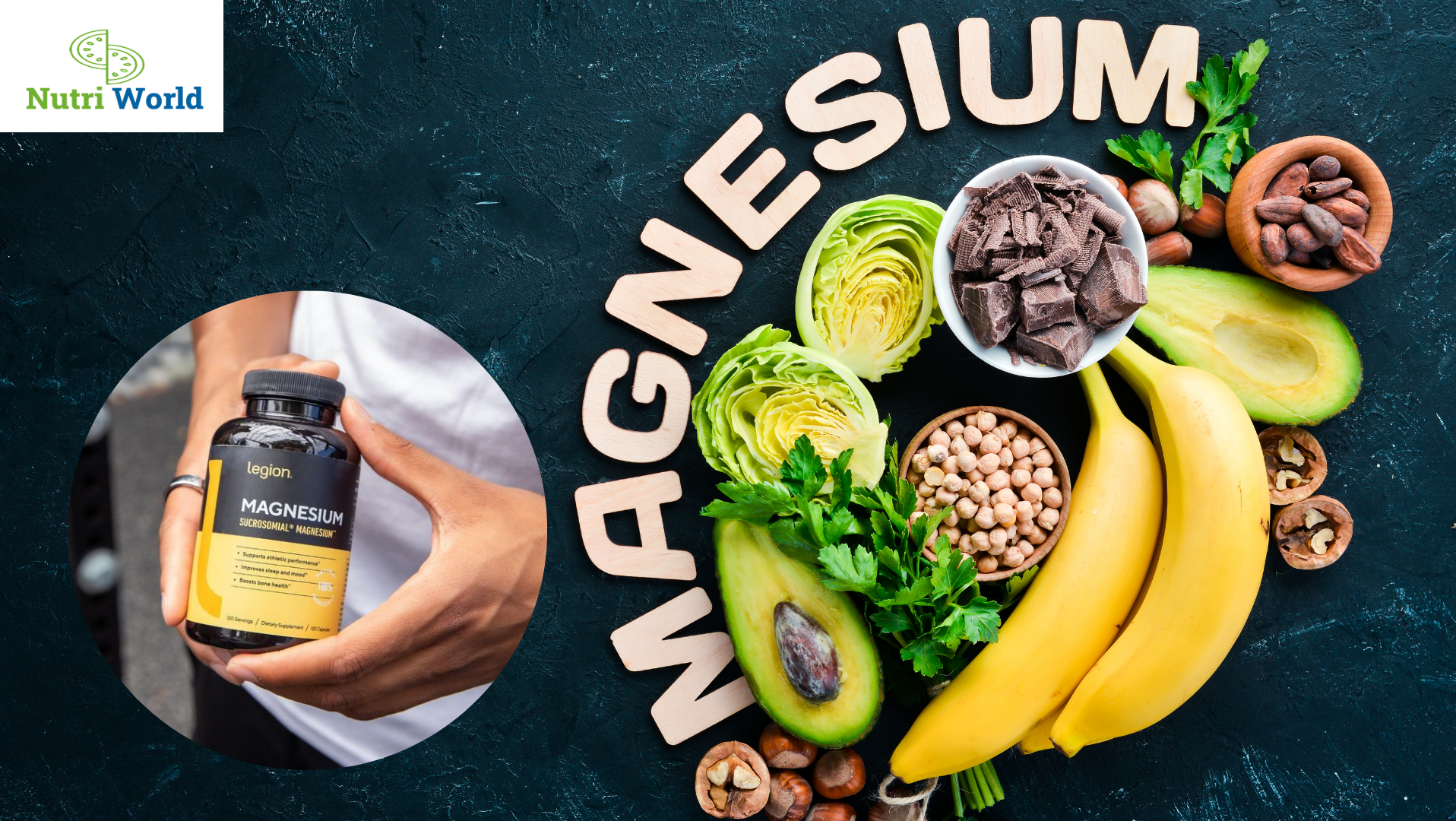
Why Magnesium Matters for Hair Growth?
Before we dive into the supplements, let’s quickly understand magnesium’s role in your hair health:
- Improves Blood Circulation – Delivers oxygen and nutrients to hair follicles.
- Reduces Inflammation – A calm, healthy scalp environment means less hair fall.
- Balances Hormones – Helps regulate cortisol (stress hormone) and insulin, both linked to hair thinning.
- Strengthens Hair Shaft – Supports protein synthesis for stronger strands.
- Prevents Scalp Calcium Buildup – Excess calcium can clog hair follicles; magnesium keeps it in check.
1. Pumpkin Seeds – The Tiny Hair Powerhouse
Pumpkin seeds, also known as kaddu ke beej in India, are one of the richest plant-based sources of magnesium. But they don’t stop there—they also contain zinc, iron, omega-3 fatty acids, and antioxidants, all of which are essential for hair follicle health.
How they help:
- Zinc in pumpkin seeds supports keratin production for thicker hair.
- Omega-3 fatty acids moisturize the scalp and fight dryness.
- Antioxidants protect against free radical damage that can lead to premature greying.
How to take:
- Eat 1–2 tablespoons of raw or roasted pumpkin seeds as a mid-morning snack.
- Blend them into smoothies or sprinkle over salads, oats, or poha.
Extra tip: Avoid salted versions to keep sodium low, which can otherwise lead to dehydration of the scalp.
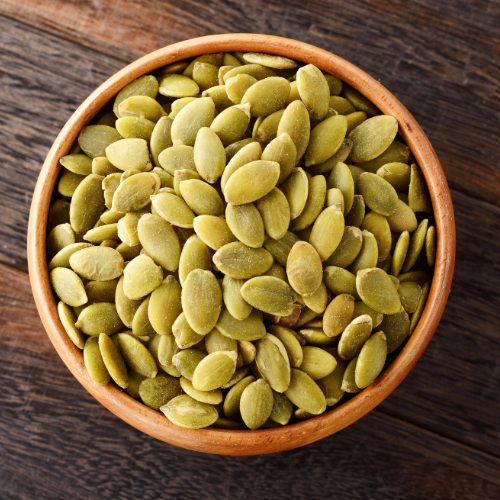
2. Dark Leafy Greens – Spinach, Moringa & Amaranth Leaves
Dark leafy greens are nutritional goldmines for your hair. Spinach (palak), moringa leaves (drumstick leaves), and amaranth leaves (chaulai) are easily available in Indian markets and provide a potent magnesium boost along with vitamin C, folate, and iron.
How they help:
- Vitamin C improves iron absorption, ensuring better oxygen supply to hair follicles.
- Folate supports cell turnover in the scalp.
- Iron deficiency is one of the leading causes of hair loss in women, and greens help combat that.
How to take:
- Add moringa leaves to dal or make a spinach-moringa soup.
- Use amaranth leaves in parathas or stir-fried with garlic.
Extra tip: Pair with lemon juice to boost iron absorption naturally.
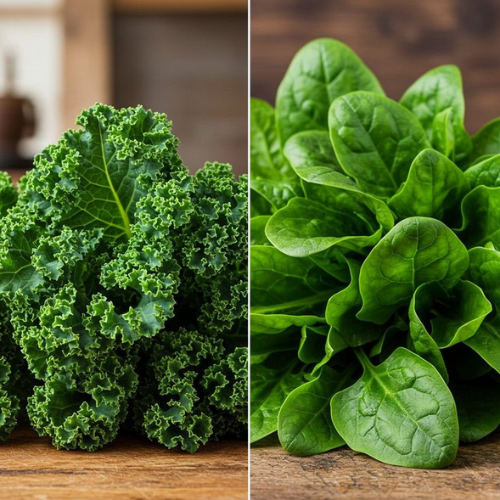
3. Almonds – The Nutty Hair Strengthener
Almonds are more than just a healthy snack—they are a hair care supplement in disguise. Rich in magnesium, vitamin E, and protein, almonds help strengthen hair strands from root to tip while protecting against oxidative stress.
How they help:
- Vitamin E nourishes the scalp and promotes blood circulation.
- Protein supports keratin formation for stronger strands.
- Magnesium prevents hair follicle miniaturization, a common cause of thinning.
How to take:
- Soak 5–6 almonds overnight and eat them in the morning for better nutrient absorption.
- Blend into almond milk for a dairy-free, hair-boosting drink.
Extra tip: Combine almonds with walnuts for an omega-3 plus magnesium combo.
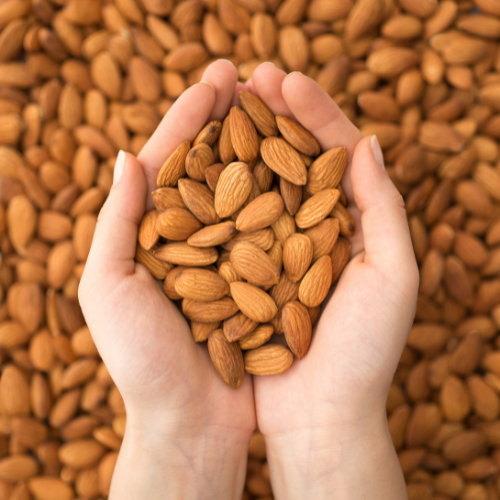
4. Black Beans – The Plant-Based Protein & Magnesium Duo
Black beans (kala rajma or lobia) are a fantastic option for vegetarians looking to boost magnesium and protein at the same time. They’re also loaded with folate, iron, and biotin, which all work synergistically to promote healthy hair growth.
How they help:
- Protein supports hair structure and strength.
- Folate aids in new cell formation for scalp and follicles.
- Biotin helps reduce breakage and improves hair elasticity.
How to take:
- Add boiled black beans to salads or wraps.
- Make a hearty black bean curry with spices like turmeric (anti-inflammatory) and cumin.
Extra tip: Soak overnight to reduce cooking time and improve digestion.
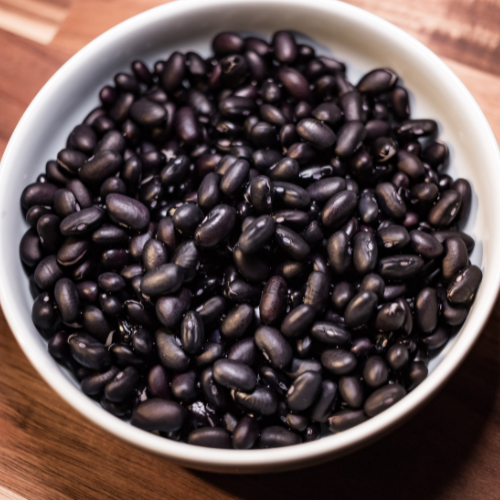
5. Dark Chocolate – The Delicious Hair Treat
Yes, your dessert can double as a hair supplement—provided it’s dark chocolate and not sugary milk chocolate. Dark chocolate with
70% or higher cocoa content is rich in magnesium, iron, copper, and flavonoids.
How it helps:
- Flavonoids improve scalp circulation, ensuring better nutrient delivery to hair roots.
- Iron supports oxygen transport to the follicles.
- Magnesium reduces stress-related hair fall.
How to take:
- Eat a small 20–30 g piece of dark chocolate as an evening treat.
- Melt it and drizzle over fruits like strawberries or bananas.
Extra tip: Avoid overconsumption—stick to a few squares a day to keep calories in check.
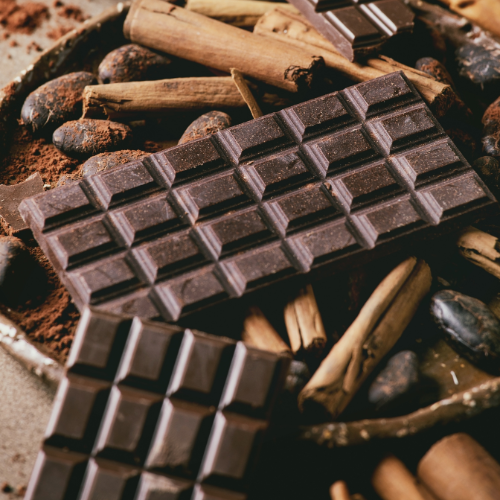
How to Maximise Magnesium Absorption for Hair Health
Magnesium works best when your body can absorb it efficiently. Here are some pro tips:
- Pair with vitamin D – Helps magnesium Get 15–20 minutes of sunlight daily.
- Limit excess caffeine & alcohol – These can deplete magnesium levels.
- Balance calcium intake – Too much calcium without enough magnesium can block its benefits.
- Stay hydrated – Water helps transport minerals to cells effectively.
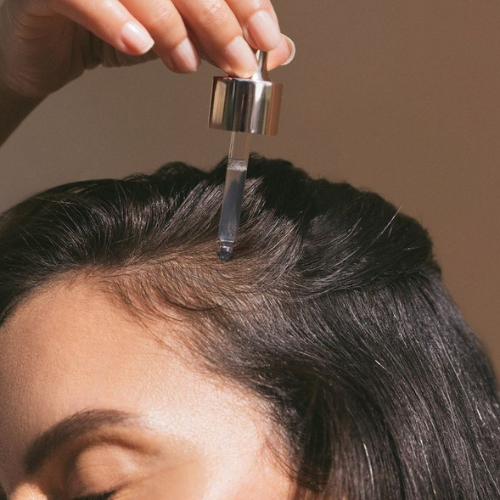
Who Should Consider Magnesium Supplements for Hair?
While food sources are the best way to get magnesium, certain people may benefit from additional magnesium supplementation (under medical guidance):
- People with chronic stress.
- Those with frequent muscle cramps (possible magnesium deficiency).
- Women experiencing hormonal hair loss.
- Individuals with poor dietary intake of nuts, seeds, and greens.
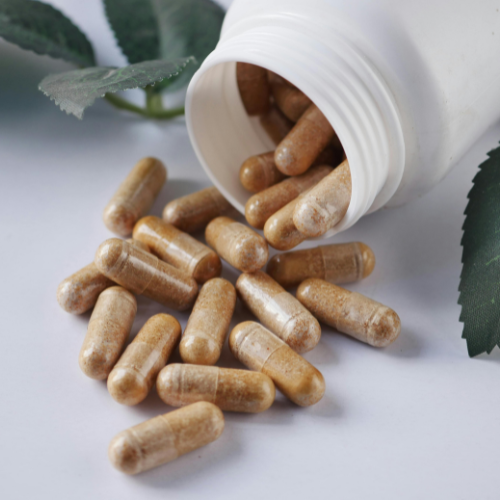
Bottom Line:
Magnesium may not get the same spotlight as biotin or collagen in hair care ads, but it’s a silent hero for your scalp and strands.
Adding magnesium-rich foods like pumpkin seeds, leafy greens, almonds, black beans, and dark chocolate to your daily diet can work wonders for preventing hair loss, improving hair texture, and supporting long-term hair growth.
The best part? These natural supplements are easily available, budget-friendly, and come with a host of other health benefits.
So, the next time you’re planning your meals, think beyond shampoo bottles—feed your hair from within with the power of magnesium.
FAQS
1. How does magnesium help with hair growth?
Magnesium supports protein synthesis, improves scalp blood circulation, and helps regulate calcium buildup around hair follicles, preventing breakage and promoting stronger hair growth.
2. Can magnesium deficiency cause hair loss?
Yes. Low magnesium levels can lead to poor follicle health, increased inflammation, and scalp dryness — all of which can trigger or worsen hair thinning and loss.
3. What are some natural magnesium-rich supplements for hair growth?
Natural options include magnesium glycinate, magnesium citrate, marine magnesium (from seawater), pumpkin seed extract, and spirulina.
4. How much magnesium should I take daily for healthy hair?
For adults, the general recommended daily allowance (RDA) is 310–420 mg depending on age and gender. Always consult a healthcare provider before starting supplementation.
5. Are there any side effects of magnesium supplements?
When taken in excess, magnesium can cause digestive issues like diarrhea or cramping. People with kidney problems should be especially cautious and seek medical advice before use.

Hi, I’m Dietitian Dipanwita Saha, A Clinical Dietitian & Nutripreneur and The Founder & Director of Nutri World. I believe healthy eating should be enjoyable, balanced, and free from guilt—not about strict rules or cutting out your favorite foods. My passion lies in helping people heal their relationship with food, especially those dealing with disordered eating. If you’re looking for a supportive, judgment-free space to nourish your body and mind, I’m here to help—let’s make food feel good again.

